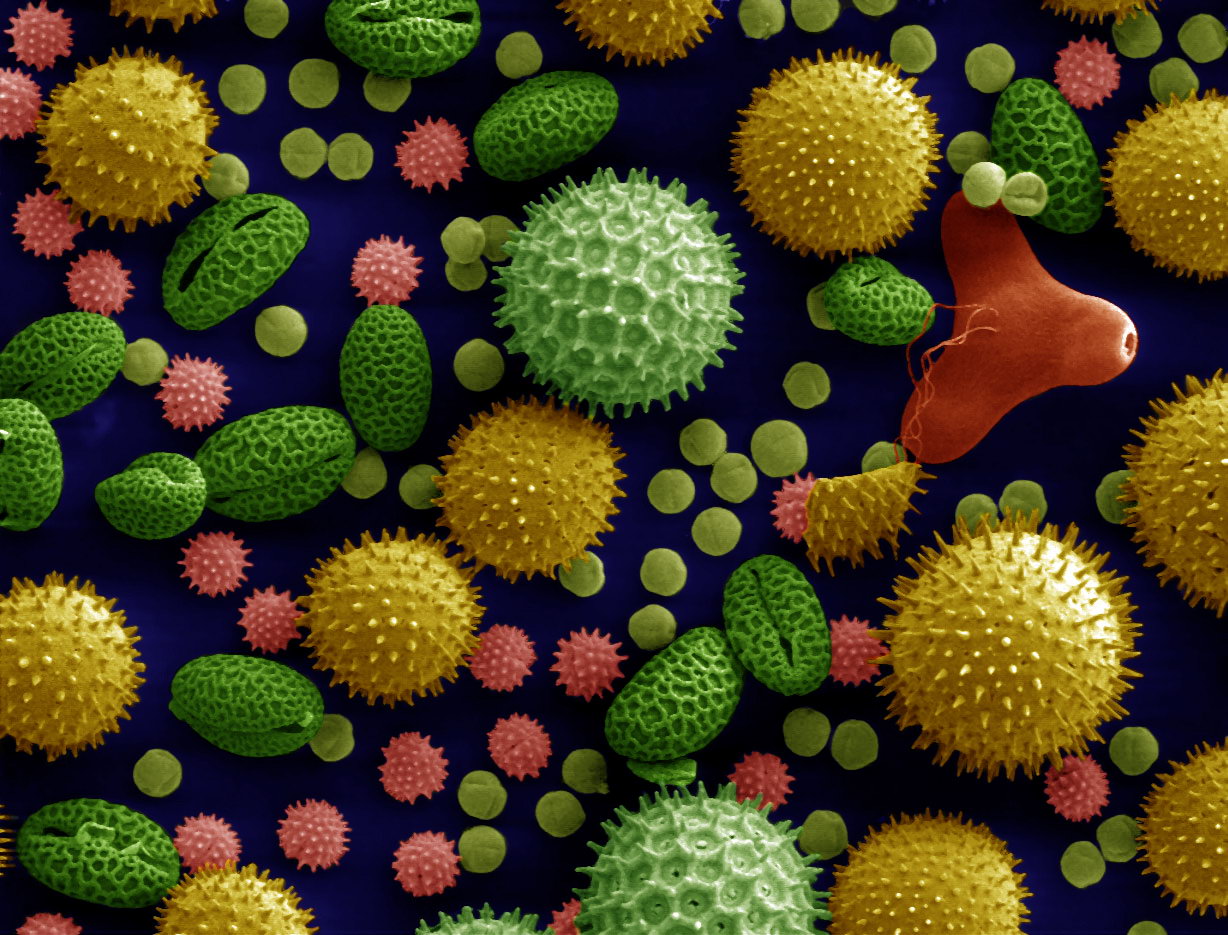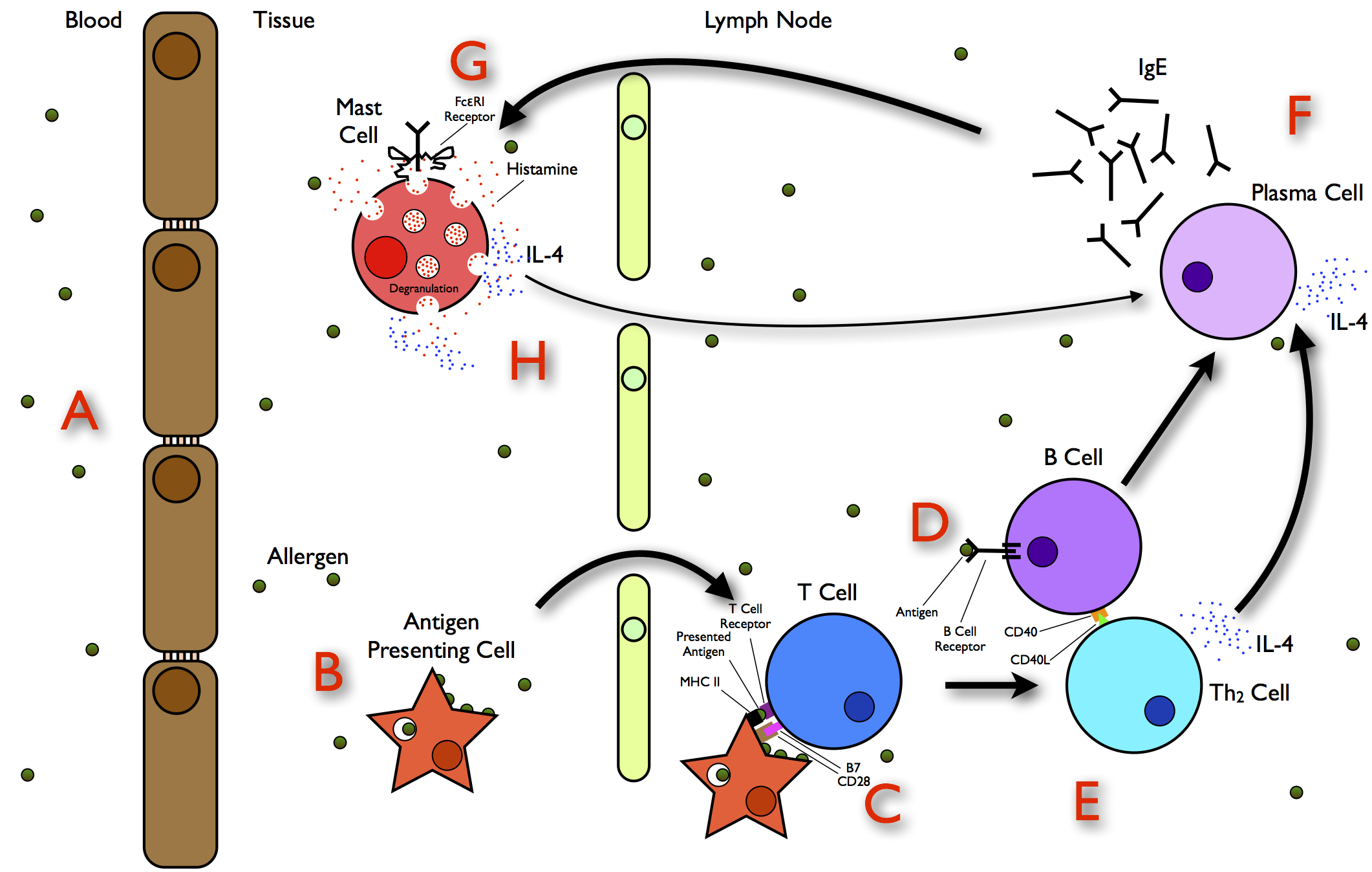|
Pollen Calendar
A pollen calendar is used to show the peak pollen times for different types of plant pollen, which causes allergic reactions in certain people. In forensics A pollen calendar can be a very useful tool in forensic science, because it can be used to place the month, or week, or date of death.E. Montali, A. Mercuri, G. Trevisan Grandi, and C. Accorsi. "Towards a 'crime pollen calendar'—Pollen analysis on corpses throughout one year." ''Forensic Science International'', Volume 163, Issue 3, pp. 211–223. Abstract found aScienceDirect website Accessed February 22, 2010. . The use of pollen for criminal investigation purposes is called "forensic palynology".D.C. Mildenhall, P.E.J. Wiltshire, and V.M. Bryant. "Editorial: Forensic palynology." ''Forensic Science International'', Volume 163 (2006), pp. 161–162. Found aTexas A & M University website(PDF). Accessed February 23, 2010. However, the use of a pollen calendar to set the date of death should be used with extreme ca ... [...More Info...] [...Related Items...] OR: [Wikipedia] [Google] [Baidu] |
Pollen
Pollen is a powdery substance produced by seed plants. It consists of pollen grains (highly reduced microgametophytes), which produce male gametes (sperm cells). Pollen grains have a hard coat made of sporopollenin that protects the gametophytes during the process of their movement from the stamens to the pistil of flowering plants, or from the male cone to the female cone of gymnosperms. If pollen lands on a compatible pistil or female cone, it germinates, producing a pollen tube that transfers the sperm to the ovule containing the female gametophyte. Individual pollen grains are small enough to require magnification to see detail. The study of pollen is called palynology and is highly useful in paleoecology, paleontology, archaeology, and forensics. Pollen in plants is used for transferring haploid male genetic material from the anther of a single flower to the stigma of another in cross-pollination. In a case of self-pollination, this process takes place from the anth ... [...More Info...] [...Related Items...] OR: [Wikipedia] [Google] [Baidu] |
District Attorney
In the United States, a district attorney (DA), county attorney, state's attorney, prosecuting attorney, commonwealth's attorney, or state attorney is the chief prosecutor and/or chief law enforcement officer representing a U.S. state in a local government area, typically a county or a group of counties. The exact name and scope of the office varies by state. Alternative titles for the office include county attorney, solicitor, or county prosecutor. The prosecution is the legal party responsible for presenting the case against an individual suspected of breaking the law, initiating and directing further criminal investigations, guiding and recommending the sentencing of offenders, and are the only attorneys allowed to participate in grand jury proceedings. The prosecutors decide what criminal charges to bring, and when and where a person will answer to those charges. In carrying out their duties, prosecutors have the authority to investigate persons, grant immunity to witnes ... [...More Info...] [...Related Items...] OR: [Wikipedia] [Google] [Baidu] |
Heuristics
A heuristic (; ), or heuristic technique, is any approach to problem solving or self-discovery that employs a practical method that is not guaranteed to be optimal, perfect, or rational, but is nevertheless sufficient for reaching an immediate, short-term goal or approximation. Where finding an optimal solution is impossible or impractical, heuristic methods can be used to speed up the process of finding a satisfactory solution. Heuristics can be mental shortcuts that ease the cognitive load of making a decision. Examples that employ heuristics include using trial and error, a rule of thumb or an ansatz, educated guess. Heuristics are the strategies derived from previous experiences with similar problems. These strategies depend on using readily accessible, though loosely applicable, information to control problem solving in human beings, machines and abstract issues. When an individual applies a heuristic in practice, it generally performs as expected. However it can alternati ... [...More Info...] [...Related Items...] OR: [Wikipedia] [Google] [Baidu] |
Rhinitis
Rhinitis, also known as coryza, is irritation and inflammation of the mucous membrane inside the nose. Common symptoms are a stuffy nose, runny nose, sneezing, and post-nasal drip. The inflammation is caused by viruses, bacteria, irritants or allergens. The most common kind of rhinitis is allergic rhinitis, which is usually triggered by airborne allergens such as pollen and dander. Allergic rhinitis may cause additional symptoms, such as sneezing and nasal itching, coughing, headache, fatigue, malaise, and cognitive impairment. The allergens may also affect the eyes, causing watery, reddened, or itchy eyes and puffiness around the eyes. The inflammation results in the generation of large amounts of mucus, commonly producing a runny nose, as well as a stuffy nose and post-nasal drip. In the case of allergic rhinitis, the inflammation is caused by the degranulation of mast cells in the nose. When mast cells degranulate, they release histamine and other chemicals, starting a ... [...More Info...] [...Related Items...] OR: [Wikipedia] [Google] [Baidu] |
National Pollen And Aerobiology Research Unit
The National Pollen and Aerobiology Research Unit or NPARU is a research institute in Worcester. It produces the UK's pollen count, and was the world's first pollen forecasting service. History Aerobiology is the study of organic particles and organisms in the atmosphere. The National Pollen and Hayfever Bureau was founded in Rotherham on 21 April 1983. Forecasts for Britain's six million people with hay fever (allergic rhinitis) began from 1 June 1983; it was funded by Fisons Pharmaceuticals. Most people with hay fever are aged 15–24 in the months of June and July. Treatments are ''Beconase'' (beclometasone dipropionate) and ''Flixonase'' (fluticasone propionate). In May 1984 it was about to close when funding by Fisons was withdrawn; the centre continued with funding from kleenex The first amateur pollen trap is now lodged in The National Science Museum The original network was mainly serviced by 30 local authorities on a voluntary basis. Clarityline, a 24-hour helpline for th ... [...More Info...] [...Related Items...] OR: [Wikipedia] [Google] [Baidu] |
Aeroallergen
An aeroallergen (''pronounced aer·o·al·ler·gen'') is any airborne substance, such as pollen or spores, which triggers an allergic reaction. Pollens Aeroallergens include the pollens of specific seasonal plants is commonly known as "hay fever", because it is most prevalent during haying season, from late May to the end of June in the Northern Hemisphere; but it is possible to experience hay fever throughout the year. The pollen which causes hay fever varies from person to person and from region to region; generally speaking, the tiny, hardly visible pollens of wind-pollinated plants are the predominant cause. Pollens of insect-pollinated plants are too large to remain airborne and pose no risk. Examples of plant pollen commonly responsible for hay fever include: * Trees: such as birch (''Betula''), alder (''Alnus''), cedar (''Cedrus''), hazel (''Corylus''), hornbeam (''Carpinus''), horse chestnut (''Aesculus''), willow (''Salix''), poplar (''Populus''), plane (''Platanus''), ... [...More Info...] [...Related Items...] OR: [Wikipedia] [Google] [Baidu] |
Court
A court is any person or institution, often as a government institution, with the authority to adjudicate legal disputes between parties and carry out the administration of justice in civil, criminal, and administrative matters in accordance with the rule of law. In both common law and civil law legal systems, courts are the central means for dispute resolution, and it is generally understood that all people have an ability to bring their claims before a court. Similarly, the rights of those accused of a crime include the right to present a defense before a court. The system of courts that interprets and applies the law is collectively known as the judiciary. The place where a court sits is known as a venue. The room where court proceedings occur is known as a courtroom, and the building as a courthouse; court facilities range from simple and very small facilities in rural communities to large complex facilities in urban communities. The practical authority given to ... [...More Info...] [...Related Items...] OR: [Wikipedia] [Google] [Baidu] |
Evidence
Evidence for a proposition is what supports this proposition. It is usually understood as an indication that the supported proposition is true. What role evidence plays and how it is conceived varies from field to field. In epistemology, evidence is what justifies beliefs or what makes it rational to hold a certain doxastic attitude. For example, a perceptual experience of a tree may act as evidence that justifies the belief that there is a tree. In this role, evidence is usually understood as a private mental state. Important topics in this field include the questions of what the nature of these mental states is, for example, whether they have to be propositional, and whether misleading mental states can still qualify as evidence. In phenomenology, evidence is understood in a similar sense. Here, however, it is limited to intuitive knowledge that provides immediate access to truth and is therefore indubitable. In this role, it is supposed to provide ultimate justifications for ... [...More Info...] [...Related Items...] OR: [Wikipedia] [Google] [Baidu] |
Police Officer
A police officer (also called a policeman and, less commonly, a policewoman) is a warranted law employee of a police force. In most countries, "police officer" is a generic term not specifying a particular rank. In some, the use of the rank "officer" is legally reserved for military personnel. Police officers are generally charged with the apprehension of suspects and the prevention, detection, and reporting of crime, protection and assistance of the general public, and the maintenance of public order. Police officers may be sworn to an oath, and have the power to arrest people and detain them for a limited time, along with other duties and powers. Some officers are trained in special duties, such as counter-terrorism, surveillance, child protection, VIP protection, civil law enforcement, and investigation techniques into major crime including fraud, rape, murder, and drug trafficking. Although many police officers wear a corresponding uniform, some police officers a ... [...More Info...] [...Related Items...] OR: [Wikipedia] [Google] [Baidu] |
Allergic Reaction
Allergies, also known as allergic diseases, refer a number of conditions caused by the hypersensitivity of the immune system to typically harmless substances in the environment. These diseases include hay fever, food allergies, atopic dermatitis, allergic asthma, and anaphylaxis. Symptoms may include red eyes, an itchy rash, sneezing, coughing, a runny nose, shortness of breath, or swelling. Note: food intolerances and food poisoning are separate conditions. Common allergens include pollen and certain foods. Metals and other substances may also cause such problems. Food, insect stings, and medications are common causes of severe reactions. Their development is due to both genetic and environmental factors. The underlying mechanism involves immunoglobulin E antibodies (IgE), part of the body's immune system, binding to an allergen and then to a receptor on mast cells or basophils where it triggers the release of inflammatory chemicals such as histamine. Diagnosis is ty ... [...More Info...] [...Related Items...] OR: [Wikipedia] [Google] [Baidu] |
Expert Witness
An expert witness, particularly in common law countries such as the United Kingdom, Australia, and the United States, is a person whose opinion by virtue of education, training, certification, skills or experience, is accepted by the judge as an expert. The judge may consider the witness's specialized (scientific, technical or other) opinion about evidence or about facts before the court within the expert's area of expertise, to be referred to as an "expert opinion". Expert witnesses may also deliver "expert evidence" within the area of their expertise. Their testimony may be rebutted by testimony from other experts or by other evidence or facts. History The forensic expert practice is an ancient profession. For example, in ancient Babylonia, midwives were used as experts in determining pregnancy, virginity and female fertility. Similarly, the Roman Empire recognized midwives, handwriting experts and land surveyors as legal experts. The codified use of expert witnesses and ... [...More Info...] [...Related Items...] OR: [Wikipedia] [Google] [Baidu] |




